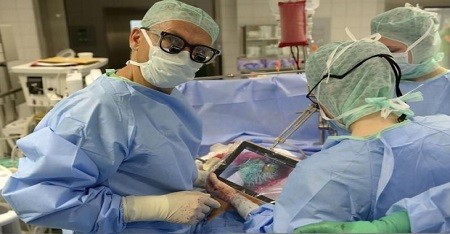Doctors revealed that soldiers in Iraq who sustained injuries below the waist can undergo surgery to recover the functions of their sexual organs through a penis transplant operation - a first in the United States, which could offer hope of fathering children to injured troops.
Surgeons from the Johns Hopkins University School of Medicine in Baltimore told The Seattle Times that the organs will come from deceased donors.
The surgeons expect that the normal functions of the organ will return in a matter of months following the surgery. Doctors anticipate that soldiers will be able to recover sensation and urinary functions.
According to the publication which obtained data from the Department of Defense Trauma Registry, from 2001 to 2013, more than 1000 American military service personnel sustained injuries below the waist in either Afghanistan or Iraq.
Close to all the cases referred to in the data, had personnel who were under 35 years and those who were hurt by homemade bombs or improvised explosive devices. The report claimed that individuals sometimes lost all or part of their organs, a condition doctors refer to as genitourinary injuries.
Chairman of Plastic and Reconstructive Surgery, Johns Hopkins University, Dr. W. P. Andrew Lee, told the New York Times, "Genitourinary injuries are not things we hear about or read about very often. I think one would agree it is as devastating as anything that our wounded warriors suffer, for a young man to come home in his early 20s with the pelvic area completely destroyed."
While the surgery is considered experimental, Johns Hopkins University is giving doctors permission to perform 60 transplants. Thereafter, the university will decide if to make the operation a standard treatment.
It is reported that the risks include bleeding, infection and also the possibility that the treatment required to prevent transplant rejection can increase the odds of cancer. However, Dr. Lee said while patients need to be realistic, hopes such as those of fathering children, he believes can be a "realistic goal" for patients.



























